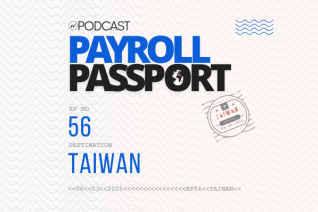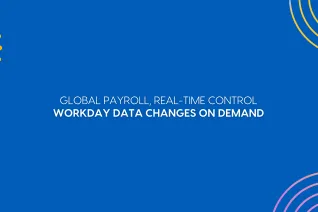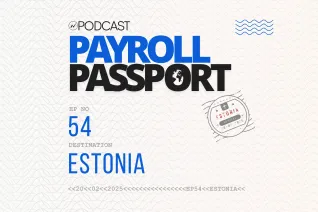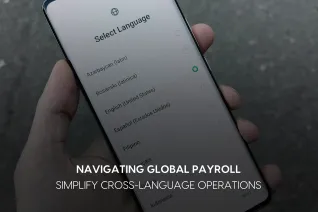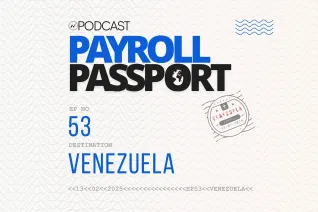Country Spotlight: Payroll in Vietnam

As businesses expand their global footprint, managing payroll in new markets presents unique challenges. With its rapidly growing economy, Vietnam offers attractive opportunities for international companies. However, its complex payroll regulations, tax obligations, and labor laws require careful navigation.
This blog post delves into the intricacies of Vietnam payroll, providing a comprehensive guide for businesses to ensure compliance while effectively managing their workforce in this dynamic market.
KNOW MORE: Vietnam: A Guideline to Payroll and Employer of Record
Withholding Obligations: Navigating Vietnam's Tax and Social Security System
In Vietnam, payroll is not just about issuing paychecks—it's also about managing the complex landscape of tax and social security contributions.
Employers must withhold income tax from employees' salaries. This tax is tiered based on income levels, similar to many progressive tax systems worldwide. Additionally, both employers and employees contribute to social insurance, health insurance, unemployment benefit funds, and the Employee's Provident Fund (EPF).
Vietnam's social security system comprises three primary components: Social Insurance (SI), Health Insurance (HI), and Unemployment Insurance (UI). SI contributes to retirement benefits, while HI ensures access to healthcare services. UI provides financial support during periods of unemployment.
Businesses in Vietnam are obligated to withhold a portion of their employee's wages to fund these programs. This withholding process, often referred to as SHUI (Social Health Unemployment Insurance), is crucial for maintaining the sustainability of the social security system and ensuring that employees have a safety net.
Given the complexity of Vietnam's tax and social security system, many businesses are turning to technology to manage these intricate calculations. Advanced payroll software like Neeyamo Payroll can automatically calculate the correct withholdings for each employee based on their salary and applicable rates, ensuring accuracy, saving time, and reducing the risk of compliance issues.
Overtime Compensation: More Than Just Extra Pay
Overtime work is common in many industries, and the overtime pay rate varies depending on when the work is performed. Employees are entitled to 150% of their regular wage for overtime on regular working days. This rate increases to 200% on weekends and 300% on holidays and paid leave days.
However, Vietnam also limits the total overtime an employee can work. Employees may work up to 200 hours a year, which can be extended to 300 hours in certain exceptional cases. These regulations ensure that employees are fairly compensated for their time while protecting them from excessive work hours.
For employers, it’s essential to monitor overtime carefully, not just from a cost perspective, but to remain compliant with the legal limits. This can be efficiently managed through time-tracking software with extensive multi-mode time capture that calculates overtime pay and can be easily integrated with the payroll solution.
Such systems can flag when an employee is approaching overtime limits, helping businesses stay compliant with Vietnam's strict regulations. A solution with global reporting capability can also generate detailed reports, providing valuable insights into overtime trends and helping optimize workforce management.
Minimum Wage Regulations: Ensuring Fair Compensation Across Regions
Vietnam’s minimum wage structure is another critical aspect of payroll that businesses must understand. The country operates under a tiered minimum wage system, categorized by regions. As of July 15, 2024, the hourly minimum wage is as follows:
- Zone 1: 23,800 VND
- Zone 2: 21,200 VND
- Zone 3: 18,600 VND
- Zone 4: 16,600 VND
These zones are determined based on the cost of living and economic conditions in different areas of the country, with Zone 1 typically encompassing major cities like Hanoi and Ho Chi Minh City.
Employers must ensure that all employees are paid at least the minimum wage applicable to the zone in which they work. This is especially important for businesses operating in multiple regions, as failure to comply with the minimum wage regulations can lead to significant legal consequences.
The Probationary Period: Setting the Stage for Employment
In Vietnam, the probationary period is a standard practice for new hires. During this period, the employee's salary must be at least 85% of the total salary for the position for which they are hired. The probationary period can vary, but it is typically two months for most positions and can be up to six months for management roles.
This probationary arrangement allows employers and employees to assess fit and performance before committing to a long-term employment relationship. For businesses, it's important to ensure that the terms of the probationary period are clearly outlined in the employment contract, including the reduced salary, duration of the probation, and expectations during this time.
Maternity Leave: Supporting Employees During a Critical Time
Vietnam’s labor laws provide strong protections for female employees, particularly regarding maternity leave. Female employees are entitled to six months of maternity leave, with the option for additional time off if they give birth to more than one child. This leave is fully paid, with the costs covered by social insurance.
Moreover, employers have the discretion to extend maternity leave beyond the mandated period, offering additional support to employees during this critical time. Businesses must account for this in their workforce planning to ensure that operations continue smoothly while respecting the rights of their employees.
ALSO READ: Mastering Data Synchronization: Key to Streamlined Payroll Operations
Payroll Processing: Leveraging Technology for Compliance
Given the complexity of payroll regulations in Vietnam, from withholding taxes to calculating overtime and adhering to minimum wage laws, it’s clear that managing payroll manually is a daunting task. Errors in payroll processing can lead to non-compliance, which can be costly in terms of both fines and damage to the company’s reputation.
This is where modern payroll platforms come into play. By automating payroll processes, businesses can ensure that all calculations are accurate, deductions are made on time, and compliance with Vietnamese laws is maintained. Neeyamo’s global payroll solutions, for instance, offer comprehensive support for businesses operating in Vietnam, allowing them to streamline their payroll operations, reduce administrative burden, and focus on their core business activities.
Navigating the payroll landscape in Vietnam requires a deep understanding of the country’s labor laws, tax regulations, and cultural practices. From complex withholding obligations to specific rules on overtime and minimum wage, compliance is key to successful payroll management in Vietnam.
Why choose Neeyamo for your Global payroll needs?
Unlock the power of seamless global payroll management with Neeyamo's expert global payroll services. Neeyamo helps you navigate complex payroll regulations in 160+ countries, ensuring compliance and minimizing risks. Not convinced yet? Here's why we're your ideal partner:
Regulatory Roadblocks? Confidently navigate complex international laws & regulations.
Irritated with Integration? Seamlessly stitch together your HR systems.
Chaotic Control? Command your global workforce from a single platform.
Tardy Transactions? Ensure prompt and precise payroll processing.
Doubtful Digital Defense? Shield your sensitive information from digital threats.
Neeyamo? Your passport to hassle-free global payroll!
Latest Resources
Stay informed with latest updates
If you're curious and have a thirst for knowledge pertaining to the HR, payroll, and EOR universe, don't miss out on subscribing to our resources.





